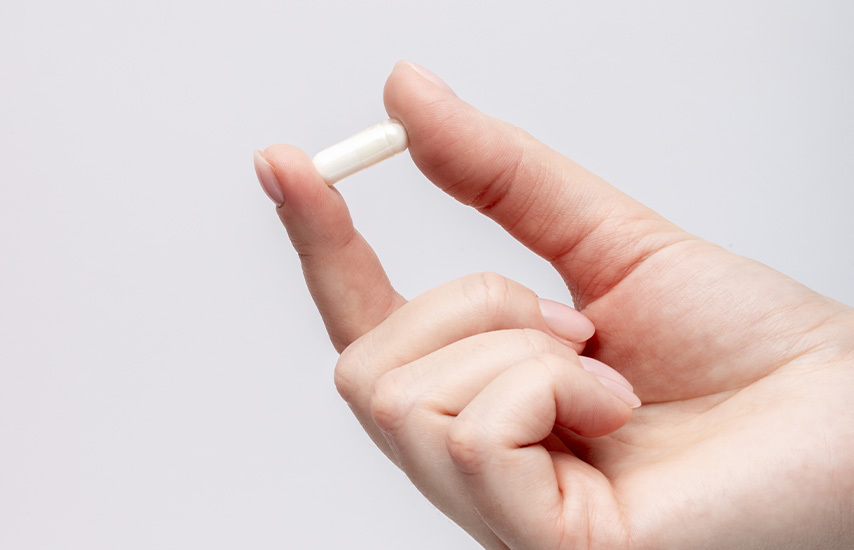Kombucha Probiotic Benefits: How This Fermented Tea Supports Gut Health and Immunity

Kombucha, a fermented tea made from a symbiotic colony of bacteria and yeast (SCOBY), has become a household name for promoting gut health and overall well-being. This ancient beverage, rich in probiotics, antioxidants, and organic acids, offers various health benefits, including improved immune system function, better gut microbiome balance, and potential heart disease and liver health support. But how does it compare to a targeted probiotic supplement and how many glasses of kombucha would you need to drink to match the benefits of a single Bioma Probiotic pill? Let’s dive into the details.
What Makes Kombucha Special?
Kombucha is a result of the fermentation process, during which bacteria and yeast in the SCOBY convert sugar and black or green tea into a slightly carbonated, tangy drink. This process produces beneficial compounds such as acetic acid, lactic acid bacteria, and polyphenols, which contribute to its health-promoting properties.
Probiotic Content of Kombucha
One of kombucha’s main selling points is its probiotic function. The live bacteria and yeast produced during fermentation may contribute to a healthier gastrointestinal (GI) tract by introducing beneficial microbes into the gut microbiome. These fermented foods have been shown to:
- Enhance gut health by promoting microbial diversity.
- Support digestion and reduce bloating.
- Help maintain a balanced microbiome.
However, the probiotic content in kombucha can vary significantly depending on whether it’s homemade kombucha or store-bought kombucha. A typical 8-ounce serving of kombucha may contain anywhere from 1 to 10 billion CFUs (colony-forming units) of probiotics, but this depends on factors like fermentation time and storage conditions.

Health Benefits of Kombucha
Kombucha offers several potential health benefits, largely due to its probiotic content, antioxidants, and organic acids. Here’s a closer look at its benefits:
1. Gut Health and Digestion
Kombucha’s probiotics may help restore microbial balance in the gut, reducing symptoms of GI distress and improving digestion. The lactic acid bacteria and acetic acid produced during fermentation can help combat harmful bacteria and promote gut healing.
2. Immune System Support
A healthy gut is closely linked to a robust immune system. Kombucha’s probiotics and polyphenols help reduce inflammation and strengthen the body’s defenses against infections.
3. Detoxification and Liver Health
Kombucha contains compounds that support detoxification and liver health, such as glucuronic acid, which aids the liver in eliminating toxins. The antioxidants in kombucha further protect the liver from oxidative stress.
4. Heart Disease Prevention
Regular consumption of kombucha may help lower cholesterol levels and reduce the risk of heart disease. The polyphenols and probiotics in kombucha can improve blood lipid profiles, supporting cardiovascular health.
5. Potential Cancer Prevention
Kombucha’s antioxidants and polyphenols may help protect cells from oxidative damage, potentially reducing the risk of cancer. While more research is needed, its role in cancer prevention is promising.
Consumption Guidelines
While kombucha offers numerous benefits, it’s essential to consume it mindfully to avoid potential risks. The Centers for Disease Control and Prevention (CDC) recommends limiting kombucha intake to 4 ounces per day for beginners and up to 12 ounces per day for regular consumers.
Who Should Avoid Kombucha?
- Pregnant women: Due to its alcohol content and caffeine, kombucha is not recommended for pregnant or breastfeeding individuals.
- Immunocompromised individuals: The live bacteria in kombucha may pose risks for those with weakened immune systems.
- People with irritable bowel syndrome (IBS): The carbonation and organic acids in kombucha may aggravate IBS symptoms.
- Those monitoring fasting blood sugar levels: Kombucha’s added sugar content can affect blood sugar control.
Always consult a healthcare professional before adding kombucha to your routine, especially if you have underlying health conditions.

Potential Risks of Kombucha
While kombucha is generally safe for most people, overconsumption or improper preparation can lead to risks such as:
- GI Distress: Excessive intake may cause bloating, diarrhea, or nausea.
- Alcohol Content: Kombucha naturally contains small amounts of alcohol (0.5% to 2%), which can accumulate in large quantities or in homemade kombucha.
- Added Sugars: Some bottled kombucha brands contain high levels of sugar, which can offset its health benefits.
- Ketoacidosis: In rare cases, kombucha may increase the risk of metabolic complications in certain individuals.
For safety, choose reputable store-bought kombucha brands or follow strict sanitation guidelines when making kombucha at home to avoid overproduction of yeast or contamination with undesirable fungi.
Making Kombucha at Home
Kombucha can be made at home using simple ingredients: black or green tea, sugar, and a SCOBY. The fermentation process typically takes 7 to 10 days, during which the SCOBY converts the sugar into organic acids, probiotics, and carbon dioxide.
Tips for Safe Homemade Kombucha:
- Use clean, sanitized equipment to prevent contamination.
- Monitor the fermentation closely to avoid an overgrowth of bacteria or mold.
- Adjust the sugar and tea levels to balance flavor and probiotic content.
Tea Benefits in Kombucha
Kombucha derives many of its benefits from its tea base. Black tea and green tea are rich in antioxidants, polyphenols, and other compounds that support health. These benefits include:
- Improved blood sugar management.
- Enhanced immune system function.
- Reduced cholesterol levels and inflammation.
- Potential weight loss support.
The combination of tea’s natural compounds and kombucha’s probiotics creates a powerful health-promoting beverage.

How Kombucha Compares to Bioma Probiotics
Bioma Probiotics, on the other hand, are designed to deliver targeted and consistent probiotic doses. Each Bioma pill provides a guaranteed amount of probiotics, often ranging from 30 to 50 billion CFUs, along with prebiotics and postbiotics for a holistic approach to gut health.
To match the probiotic content in one pill of Bioma Probiotics, you would need to drink at least 3 to 5 bottles of kombucha daily. However, consuming such large quantities of kombucha could lead to excess added sugars, alcohol levels, and other side effects, making it less practical than a single, convenient pill.
Why Bioma Probiotics Are a Better Alternative
While kombucha is a fantastic addition to a healthy lifestyle, it has limitations. The probiotic content in kombucha is inconsistent, and consuming enough to match the benefits of a Bioma Probiotic pill can be impractical due to its added sugars and alcohol content.
Bioma Probiotics offer:
- Consistent Probiotic Doses: Each pill contains 30-50 billion CFUs, far exceeding the probiotic content in a serving of kombucha.
- Three-in-One Formula: Bioma combines probiotics, prebiotics, and postbiotics to provide comprehensive gut health support.
- Convenience: Unlike kombucha, Bioma pills are easy to store, carry, and consume without worrying about sugar or alcohol intake.
Final Thoughts
Kombucha is a delicious, natural source of probiotics and antioxidants that can support gut health, immunity, and overall wellness. However, to achieve the same level of probiotic benefits as a single Bioma Probiotic pill, you’d need to consume several servings of kombucha daily—something that may not be practical or healthy due to the beverage’s added sugar and alcohol levels.
For a consistent, targeted approach to gut health, Bioma Probiotics offer a superior alternative. By combining probiotics, prebiotics, and postbiotics, Bioma provides comprehensive support for digestion, immunity, and microbiome balance in a convenient, sugar-free capsule.
Incorporating both kombucha and Bioma into your wellness routine can offer the best of both worlds: the refreshing taste and natural benefits of kombucha with the precision and potency of a high-quality probiotic supplement.
Related articles



